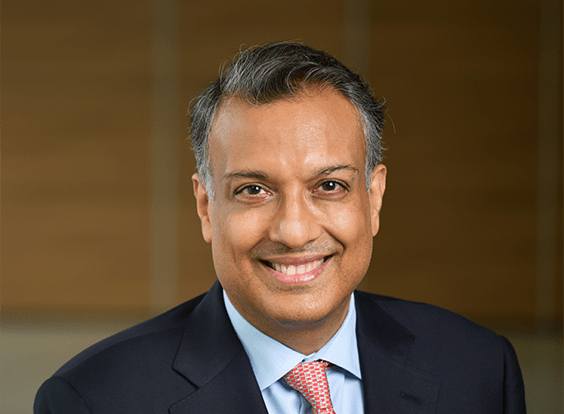But the chairman and CEO of India’s largest renewable energy company, ReNew, Sumant Sinha said he believes his country has been “quite progressive” in its approach to clean energy and could become “an example for a lot of the other developing countries to follow a similar model”.
Although India still gets 55% of its energy from coal, Sinha says the amount of solar and wind energy on the grid is rising rapidly and now accounts for between 12 and 13% of total power generation.
“The problem for India is that we don't have gas, so our dependence ends up being on coal,” he told Forbes.
But he adds the Indian government has set a target of getting 50% of the nation’s power from non-fossil fuel sources by 2030.
“With renewables being so cheap, there’s going to be a big economic gain for India as we meet our future demand from green energy,” he said. “And the intention of the government is to develop a renewables manufacturing industry and become a supplier to the rest of the world.”
India currently imports about $150 billion worth of fossil fuels every year, including oil and gas and coal.
And Prime Minister Narendra Modi has set a target that by 2047, which is 100 years after India's independence, where the country should reach a point of energy independence.
Sinha said this can can only happen with a much faster rollout of renewables.
In addition, he said among the Indian people, there is “absolutely no pushback on climate change”.
“The public at large believes that climate change is a real problem and is very supportive of whatever the government wishes to do. There is a very clear appreciation that this is a real issue, and that we need to deal with it.”
He added he also expects green hydrogen, hydro and energy storage to play a key part in India’s transition to clean energy, but he also warned that some countries are still too focussed on coal.
“The problem is that a lot of countries still have the view that renewables are more expensive, and therefore their default option is still coal,” he said.
“For example, I was taking part in a panel discussion at COP27 and an African delegate stood up and said ‘we need to develop, we need cheap electricity, and therefore we need coal-based power’.
“I said to him ‘renewables are much cheaper than coal-based power and should be the default option’, but unfortunately a lot of people are still not educated about the possibilities of renewable energy.”
Renew now has 13.4GW of clean energy assets in its portfolio, making it the largest renewable energy provider in India and the 10th largest in the world.
“Our strategy is that opportunities are now emerging in various areas, not just in India,” he said.
Sinha added ReNew will also start to look at the possibility of developing green hydrogen, both in India and beyond.
And looking towards the future, Sinha said India will be able to start supplying renewable energy technology to the rest of the world, and become an example for other countries.
“I see us having tremendous room for growth in the future,” he added.



